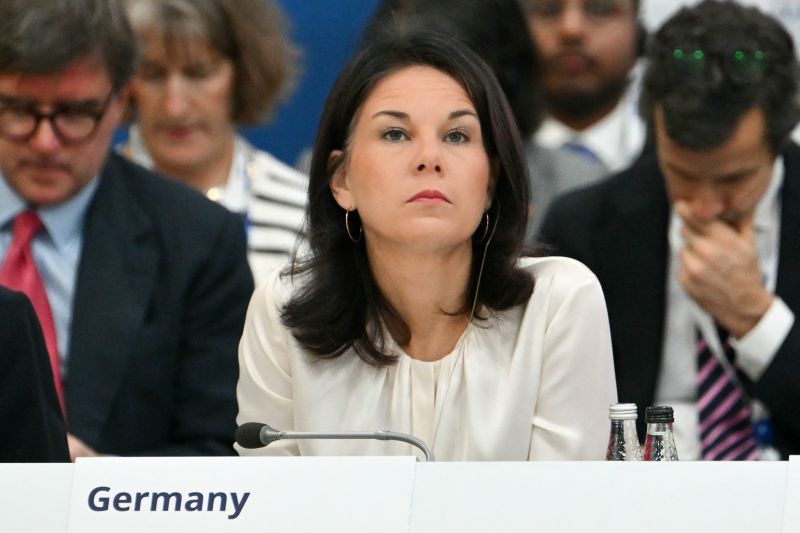- Home
- Middle East
- Germany and France Urge Restraint as Syria Faces Transition

German Foreign Minister Annalena Baerbock (C) attends the plenary session of the 31st Ministerial Summit of the Organization for Security and Co-operation in Europe (OSCE) in Ta'Qali, Malta, December 5, 2024 ©Alberto PIZZOLI / AFP
As Syria enters a new phase following the ousting of President Bashar al-Assad, international powers, including Germany and France, are urging regional actors to avoid actions that could hinder a peaceful transition in the country.
Germany's foreign minister on Wednesday urged Israel and Turkey not to jeopardize a peaceful transition in Syria after the ousting of president Bashar al-Assad in an Islamist-led rebel offensive.
"We must not allow the internal Syrian dialogue process to be torpedoed from the outside," Annalena Baerbock told a Berlin press conference.
"Neighbours such as the Turkish and Israeli governments, which are asserting their security interests, must not jeopardize the process."
Since Assad's downfall, Israel has launched strikes on military sites in Syria ranging from weapons depots to naval vessels, according to the Syrian Observatory for Human Rights war monitor. Israel has also sent troops into a UN-patrolled buffer zone east of the Israeli-annexed Golan Heights.
Turkey, meanwhile, is worried Kurdish separatists could take advantage of Assad's ouster to extend their influence in Syria, where they have dominated a large northeastern area since 2012. Ankara sees the Kurdish forces, notably the militant group YPG, as an extension of the banned Kurdistan Workers Party (PKK), which has fought a bloody insurgency against the Turkish state since the 1980s.
Since Assad fled, Turkish-backed groups have launched offensives in northern Syria. The Kurdish-led force in the northeast of the country said Wednesday it had reached a US-brokered ceasefire with the Turkish-backed fighters in Manbij, an Arab-majority city that has seen fierce clashes.
Baerbock said Syria's "new chapter" was still being written, adding that "the outcome of the revolution is not certain, nor have the people won the transition to a free and peaceful Syria."
"We must now seek to promote positive developments in Syria and prevent negative influences," she said. "In very specific terms, this means that a Syrian-led dialogue process is needed, which we as Europeans and as Germans will support."
"Syria must not be allowed to become a pawn in the hands of foreign powers or forces again," she added.
During Assad's rule, Syria was a key ally of Iran. Assad was also backed by Russia, and Moscow's intervention in Syria in 2015 turned the tide of the country's civil war and is credited with saving his regime.
France’s Buffer Zone Concern
Meanwhile, France's foreign ministry has urged Israel to withdraw its forces from the buffer zone between the annexed Golan Heights and Syrian territory, emphasizing that any military presence there violates the 1974 disengagement agreement.
"Any military deployment in the separation zone between Israel and Syria is a violation of the disengagement agreement of 1974," a foreign ministry spokesman said.
Israeli Prime Minister Benjamin Netanyahu announced on Sunday he had ordered the army to "seize" the demilitarized zone in the Syrian-controlled part of the Golan Heights after rebels swept Syrian president Bashar al-Assad from power.
"France calls on Israel to withdraw from the zone and to respect Syria's sovereignty and territorial integrity," the foreign ministry spokesman said.
The area is patrolled by a UN peacekeeping force known as UNDOF, with the global body warning Israel Monday it is in breach of the 50-year-old deal that ended a 1973 war with Syria.
Speaking on condition of anonymity, a UN official in New York told AFP that Israeli forces had occupied seven positions in the buffer zone.
France's intervention follows condemnations from Saudi Arabia, Iran, Russia, and Turkey, as well as a US call for the Israeli incursion to be "temporary."
With AFP
Read more



Comments